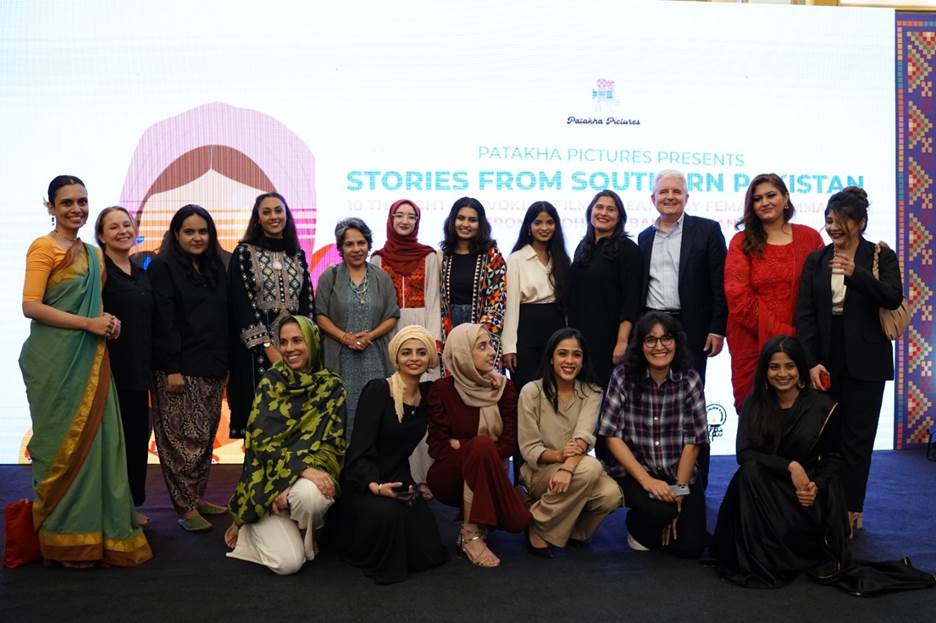
Oscar Winner Sharmeen Obaid Chinoy Brings 19 Female Filmmakers together
By Rida Lodhi
Karachi
The year is 2002. Aspiring filmmaker Sharmeen Obaid-Chinoy is dreaming big – hoping to change the narrative when it comes to telling much-needed stories in Pakistan. She's struggling. With little exposure and limited resources, Obaid-Chinoy is in a dire strait. She eventually finds a magazine lying around that somehow relinquishes her faith in her art.
"This magazine had statistics," the now two-time Oscar-winning filmmaker told an inspired crowd at a posh Karachi hotel. "One thing that particularly caught my eye was that from the period of 1963 to 1966, Pakistan made 65 documentaries that ended up winning over 20 awards around the world."
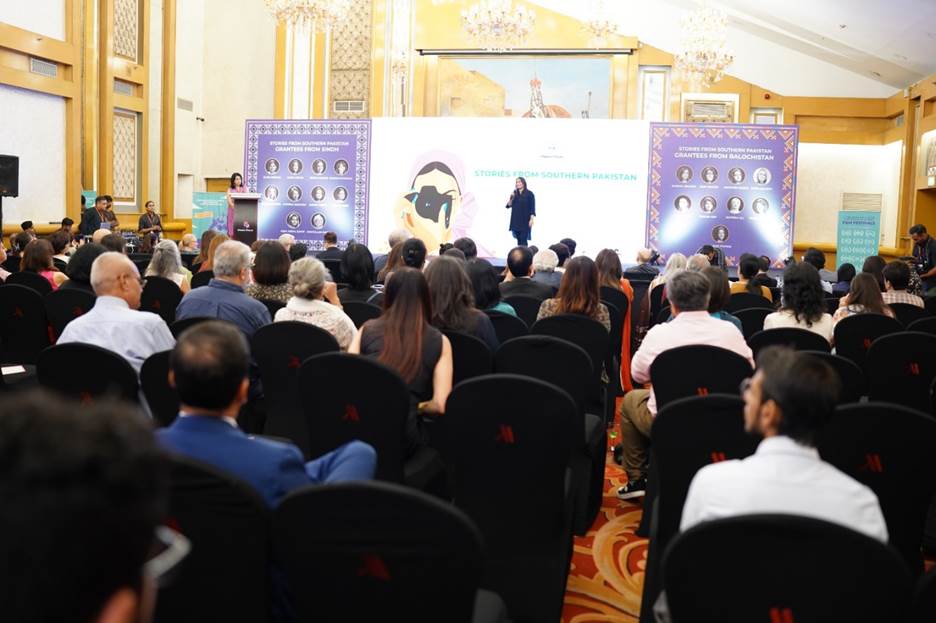
“ …We won't just be about helping female filmmakers or actors but women who are technically sound to create films."
The Saving Face maker, who'd later go on to study and work under some of the most nuanced minds in her craft, added, "When I opened my eyes in 1978, that was not the Pakistan that earned awards globally. I think that several years later, the time has come to lay the foundation of filmmaking in Pakistan and give back to the people. Patakha Pictures is our passion project that aims to achieve the same. I would say that the women you are about to meet today are my heroes."
The Ms. Marvel director revealed that it was the participants' sheer will, determination and passion that helped them tell the stories they wished to tell from the communities they belonged to.
Obaid-Chinoy's latest venture brought together 19 filmmakers from different parts of Sindh and Balochistan, offering them grants and monetary compensation while teaching them the technical skills to tell the stories they wanted to showcase to the world. The audience saw a few glimpses of the ten documentaries the 19 filmmakers had presented. The Silence After the Storm, Karachi Begums, Niswan-Nama – Women, Theatre, Activism — A Tale from Pakistan, Nayyar – An Art Story, Made With Love, Sculpted, Defiance, Pehchaan, Tum Nahi Chara Gar, Kawish and From Rocks to Gold – Doch The Art of Balochistan were screened and it was evident that the participants' labor of love was made with intense detailing.
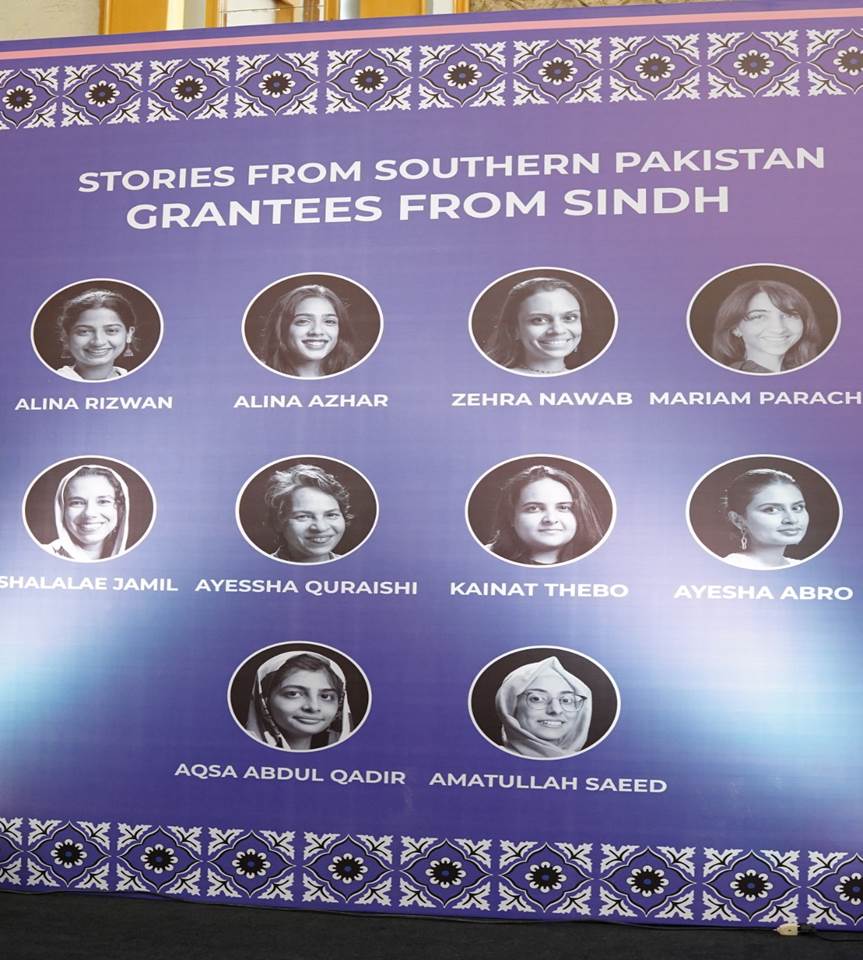
"These women come from those communities. They live there; they speak the language, and they know the issues. There's no better storyteller than the one who is part of the community they want to highlight…”
"The whole idea is to be the ecosystem for the female filmmakers of this country," Obaid-Chinoy told The Express Tribune in an exclusive statement. "What we're doing is laying seed for that to germinate and grow. When these women learn skills, when they get mentorship, and they get funding, they can go back to their own communities and help educate other filmmakers. That's how we will have female DOPs, female sound masters, and female editors. We won't just be about helping female filmmakers or actors but women who are technically sound to create films."
'Close to their hearts'
"These women come from those communities. They live there; they speak the language, and they know the issues. There's no better storyteller than the one who is part of the community they want to highlight. That is why they have the access they do," Obaid Chinoy commented.
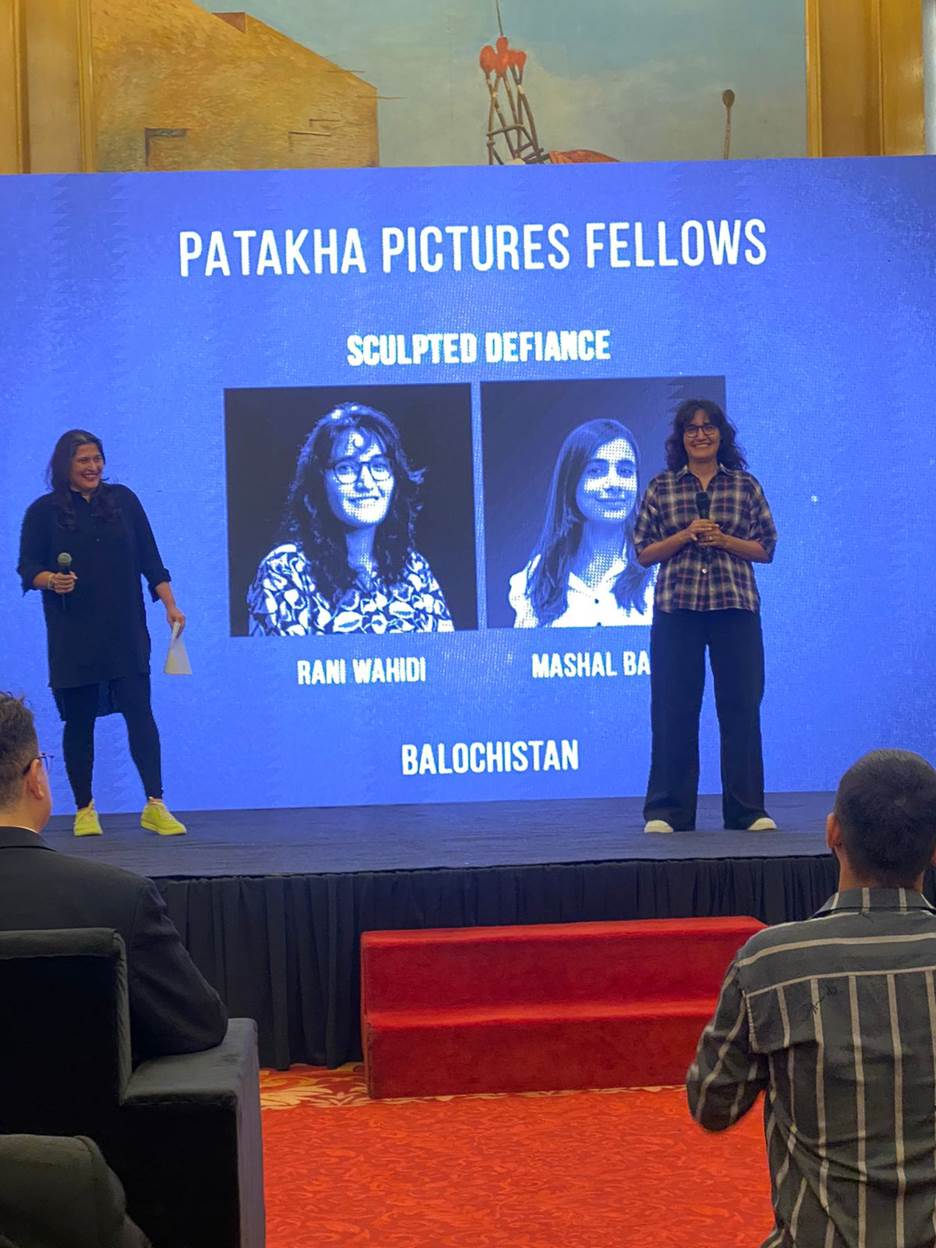
Rani Wahidi, who had the crowd cheering for her with her own struggles and life story, decided to take on the journey of Ishaq Lehri, a sculptor hailing from Mastung. Despite societal norms and religious objections that label sculpting as haram (forbidden), Lehri's passion for sculpting has remained unyielding. Lehri navigates the challenges of defying societal expectations and the disapproval of his own family, particularly his brother, who condemns his work. Ishaq's decision to pursue sculpting exclusively results in encountering both allies and adversaries along the way.
"The labels of haram and halal have been overshadowing our art for a long time," Wahidi told me. "I think it's about time we come out of the 'forbidden' narrative and own our culture."
Kainat Thebo's Made with Love was about a retired school teacher who collects waste material and makes things out of it. She has created more than 1,000 models, including Sindhi folk characters, renowned personalities, and other things. "I think her story really appealed to me," she commented when asked why she posed interest in her story. "It's about being substance conscious, and it helps with climate, too."
Yamna Waqar and Nafeesa Ali's Tum Nahi Chara Gar follow the story of Payal Nadeem, late 30s, a transgender person living in Quetta, Pakistan. "We're from Quetta," the duo told me. "Nafeesa is from the Hazara community, and since we live in Quetta, we are already under a bit of scrutiny. So, we wondered if we women had substantial issues on hand, how much adversity would a trans person face in that city. That's why Payal's story is important to tell."
The star power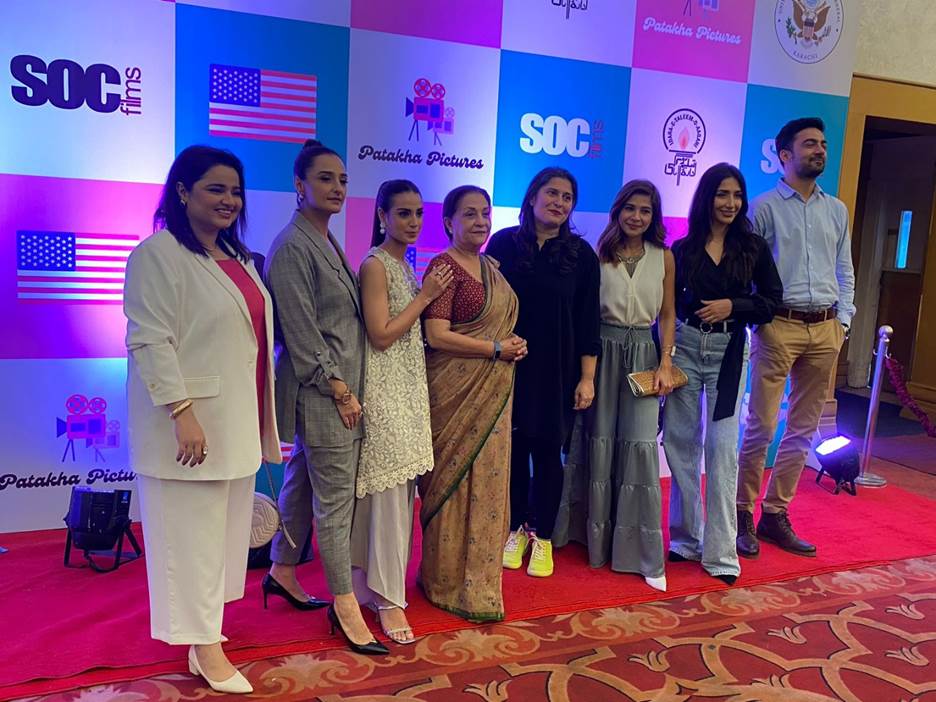
The event also saw several bigwigs from the Pakistani entertainment industry in the audience. The likes of Samina Ahmed, Ayesha Omar, Momal Sheikh, Iqra Aziz, Hira Tareen, Ali Safina and Faiza Saleem were seated in the audience, lauding the female filmmakers
"You know, I have to say this: women have this sensitivity about them that reflects so well in their work," Sheikh shared with me once the event concluded. "When they get behind the camera, it shows that they are much more conscious about portraying stories in a more emotional manner, which works so well as you just saw. The topics they have worked on are in a very different light. I had goosebumps, I had teary eyes."
Omar added, "I am blown away. I am just in awe of these young women and their ideas. The stories they have chosen are just brilliant. I am inspired to make a documentary now!" – The Express Tribune

